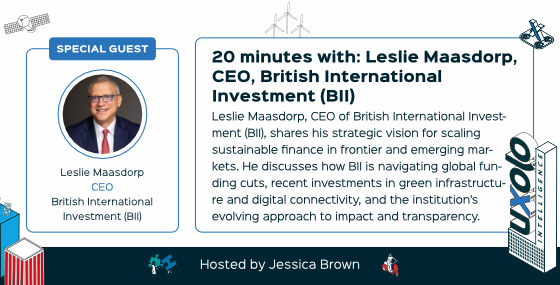Are DFIs doing enough to support EV infrastructure growth?
DFI support for EV charging infrastructure is growing – slowly. The scale of support is still very low given the size of the investment requirement, and the focus to date has been largely on the more easily banked fleet rather than consumer charging network financings.

The EIB announced this week that it is providing a €40 million ($42.9 million) loan to start-up Zunder to part-fund its planned €300 million EV fast-charging network of 4000 charge points across Spain.
The deal is the latest of a number of small MDB/DFI loans funding various operators in the European EV sector over the past two years. Most recently EIB provided a €40 million loan for Spanish EV cab operator Cabify in December last year, which will in part fund EV charging station development. And last month the EBRD provided Enerjisa with a $110 million loan to modernise its electricity distribution network in Turkey, part of which will finance expansion of its EV charging infrastructure.
Any DFI backing for the emerging EV sector is always welcome, but in terms of debt volume, the DFI-backed facilities are small and a measure of just how reliant the EV sector still is on equity rather than debt. For example, Zunder, which was started in 2017 by two entrepreneurs, attracted equity investment from White Summit Capital Fund V in 2021 (which remains the majority shareholder) and €100 million from Mirova in 2022 for a 25% stake. So the system will largely be built out with equity – the EIB debt is arguably a financial cherry rather than driver.
On a similar note, the much larger Enerjisa facility provided by the EBRD is “the largest-ever financing for electric vehicle charging and distributed generation that the EBRD has sponsored anywhere in the world,” according to the EBRD's managing director for Sustainable Infrastructure Group, Nandita Parshad, in a post-signing interview with Anadolu Agency.
The deal is a significant benchmark and one from which the EBRD expects to gain insight into EV charging project process. But if a $110 million loan is the EBRD’s largest EV infrastructure deal to date – and the EBRD is arguably ahead of the EV infrastructure curve compared with many DFIs – considerably more needs to be done by the development finance sector, governments and commercial lenders to meet EV infrastructure investment requirements, which are in the billions rather than millions.
According to analysis by consultancy McKinsey, conducted for a report by the European Automobile Manufacturers’ Association (ACEA), the infrastructure rollout required for the European Union alone will ‘cost a cumulative total of €240 billion for hardware and installation by 2030. That includes installing new charging points, upgrading power grids, and increasing renewable-energy generation capacity. More than half of this funding – 60%, or €130 billion – would support the planning, engineering, and installation of new public and private charging points (20% and 40% of the total, respectively); 15% would pay for grid upgrades and 25% for renewable-energy capabilities.’
Every DFI broadcasts their commitment to energy transition, of which EV charging is a major part of the bedrock. The same is true of commercial banks. But while renewable energy financing has become mainstream, EV charging schemes seem to slip between a bankability gap that in many other developing markets would normally be bridged by DFIs via blended financings as the sector transitions to commercial bankability.
Arguably the commercial bank template for EV charging projects is in place. In 2019, Meridiam-owned Allego closed on its first hybrid EV charging financing – a €150 million corporate financing with project finance style covenants (a deal the EIB complemented with €40 million of junior financing as part of Meridiam’s acquisition of Allego the previous year).
In 2021 Allego followed up with the world’s first true project financing for EV infrastructure – a €59.5 million 10-year project loan provided by Santander, Arkea Banque Entreprises et Institutionnels, La Banque Postale, Credit Agricole, BRED Banque Populaire and BBVA. Societe Generale, which was co-underwriter with Kommunalkredit on the 2019 deal, acted as financial advisor and provided an equity bridge loan for the 2021 deal.
The financing was fully commercially banked and set a benchmark for EV infrastructure debt, but the €59.5 million debt raised was significantly below the normal 80/20 or 70/30 project debt to equity ratio – the total project cost was €138 million. And the very fact it took seven banks to provide just €59.5 million of longish term non-recourse debt for an EV project is symptomatic of the reticence commercial project lenders still have about the consumer EV charging market – Allego demonstrated commercial bankability, but the structure has yet to be repeated and was certainly no signal that DFI support for the sector is not required.
The Uxolo perspective
Given in the European Union alone transport was responsible for about a quarter of CO2 emissions in 2019 – of which 71.7% came from road transportation according to a report from the European Environment Agency – the current volume of government, DFI and commercial bank support specifically aimed at EV charging infrastructure (the ACEA’s €130 billion investment requirement to support the planning, engineering, and installation of new public and private charging points) is clearly insufficient if carbon reduction commitments are going to be met.
While DFIs have made some progress on EV charging for fleet deals in both developed and emerging markets – notably the Cabify financing in Spain, or the recent e-bus deals by FDN and Proparco and IDB Invest and UKSIP in Colombia – with their more predictable income streams, fleet deals will make the transition to commercial bankability much quicker than consumer charging networks, which is where considerably more DFI focus needs to be.
Project financing for consumer EV charging networks is a chicken-and-egg conundrum – you can’t ameliorate commercial project lender angst about demand risk without building the infrastructure to generate traffic data, and you can’t project finance the infrastructure without a track record and demonstrable means of mitigating traffic risk. That sounds like the kind of market development hurdle that significant DFI guarantees and direct lending should and could overcome.





